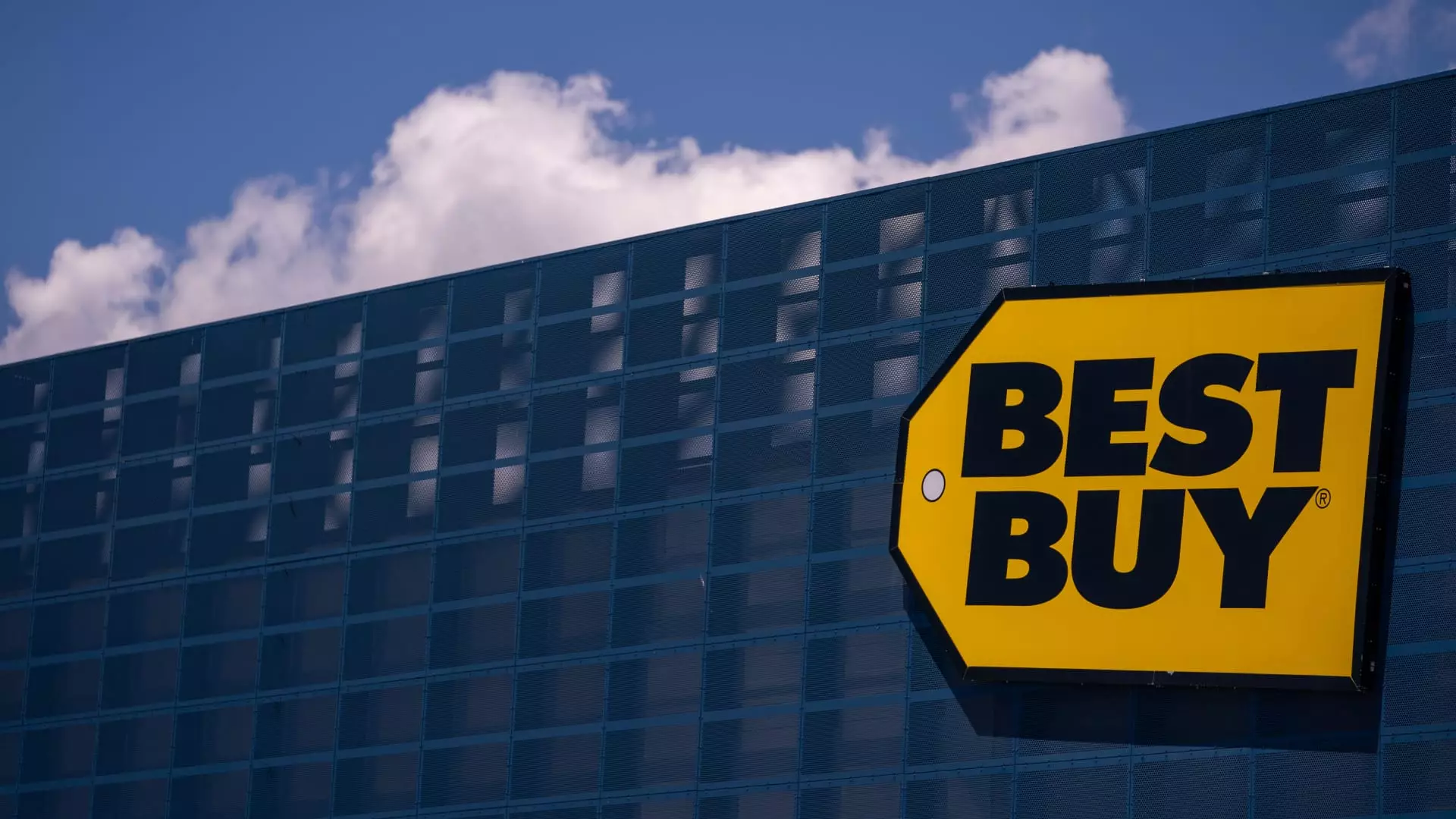The dynamic landscape of U.S. trade policy is once again in the spotlight as the electoral season approaches. The implications of potential tariff increases have been a focal point for investors, particularly concerning companies that have heavily relied on imports from China. Recent comments from former President Donald Trump suggest a return to stringent tariff regulations should he regain office, including plans for a universal 20% tariff and a staggering 60% tariff specifically on Chinese goods. Analysts at Goldman Sachs have taken note of these developments, identifying various U.S. retailers that might suffer significant financial repercussions as a result.
Companies that have not only a large volume of imports from China but also lack robust strategies to mitigate rising costs are poised to face considerable challenges. For example, retail brand Torrid has been flagged by Goldman Sachs for its substantial dependence on Chinese imports, which constituted 53% of its goods as of FY23. This dependency is compounded by the company’s inability to effectively transfer those increased costs onto consumers due to its high product elasticity. With shares having dropped 42% this year, the retailer is under significant pressure. Interestingly, despite these challenges, Goldman Sachs holds an optimistic outlook with a price target suggesting an 85% upside in the future.
Best Buy, a significant player in the electronics market, is similarly situated. With around 60% of its inventory sourced from China, any proposed tariffs could strain the retailer’s profit margins. Analyst Brooke Roach noted that while Best Buy has shown resilience this year with a price increase of 19%, the company’s high reliance on imported goods may leave it vulnerable. Many analysts maintain a neutral stance on the stock, reflecting a cautious approach amid shifting trade policies.
Conversely, upscale brands like RH have demonstrated a more favorable position in light of potential tariff hikes. Formerly known as Restoration Hardware, the brand’s dependence on foreign goods is notable, with 66% of its inventory sourced from Asia. However, RH maintains a unique advantage: its clientele’s willingness to absorb higher prices. This ability allows RH to shift some of the tariff burden onto consumers without severely impacting sales, a strategy that many mainstream retailers may struggle to adopt.
Similarly, Floor and Decor, a flooring retailer, faces its own set of challenges with 23.5% of its products produced in China. Although it exhibits high product elasticity, its low capacity to pass costs onto consumers could result in problems if tariffs are enacted. That said, recent corporate strategies appear promising. Reports suggest that Floor and Decor is actively working to decrease its reliance on Chinese imports. This proactive stance could potentially reduce negative impacts stemming from tariff increases.
Other companies are not waiting for tariffs to take effect before strategizing. Brands like SharkNinja and Yeti are launching initiatives to diversify their sourcing away from China. SharkNinja has already outlined its commitment to accelerating supply chain diversification, projecting a reduction in reliance on Chinese manufacturing by the end of 2025. Such strategic adjustments will likely mitigate their exposure to the fallout from any tariff increases. Meanwhile, Yeti is also making moves to diversify, as highlighted in recent earnings calls.
Both SharkNinja and Yeti are positioned somewhat oppositely in the stock market, with SharkNinja experiencing a share price increase of 77%, while Yeti has suffered a decline of 28%. The contrasting performances illustrate how market sentiment can be heavily influenced by corporate strategies in response to altering regulatory environments.
As the elections loom and the prospect of another Trump presidency becomes more tangible, the ramifications of potential tariff increases loom large over the retail sector. Companies positioned heavily in the import market, particularly those with significant Chinese stakes, could find themselves navigating turbulent waters. While certain retailers exhibit resilience and have implemented strategies to mitigate risks, the overall landscape remains fraught with uncertainty.
Trade policies will undoubtedly continue to evolve, and retailers will need to remain vigilant and adaptable to mitigate the repercussions of changing tariffs. The importance of a diversified supply chain cannot be understated as businesses brace for what lies ahead. Investors, too, should approach the market with cautious optimism, adapting to the realities of a shifting trade climate that is likely to define the economic landscape for years to come.

